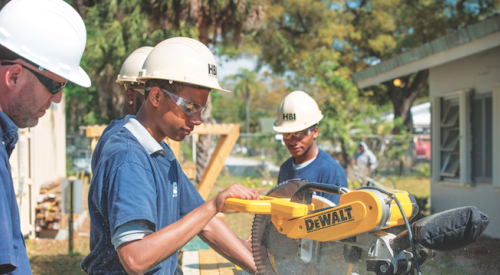Many formerly incarcerated individuals have found both hope and stability in the construction sector thanks to contracting groups and employers offering training to those with criminal records. April has been named “Second Chance Month” to raise awareness about the hurdles formerly incarcerated individuals face once reentering the workforce, says Construction Dive. Hiring and training formerly incarcerated individuals addresses both the industry’s need for workers and their need for accepting workplaces. One training program, ABC Keystone Chapter in Pennsylvania, is designed specifically to give those with criminal histories trade skills.
During the eight-week training program, students receive a gradually increasing weekly stipend, a total of $2,000 upon graduation with a perfect record. As part of R3, students get additional cognitive training to help them with rapid decision-making, Peggy Kershner, co-executive director of BCPS, told Construction Dive. The class is intended to help students identify triggers and find positive solutions when an issue may escalate on the jobsite or in the broader world.
The cognitive training, hands-on work such as fixing dilapidated houses with Habitat for Humanity and the payment for enrolling in the course motivates workers to choose construction, Kershner said.
Programs for reentering citizens offer a way to develop their hard skills — such as tradesworker certifications — and to beef up their life skills designed to help overcome societal obstacles, according to Kristen Rantanen, senior vice president of communications and public affairs for JEVS Human Services, a social services organization in Philadelphia that has helped reentering workers find jobs in construction. The key is to recognize the experiences and skills returning citizens can bring to employers, Rantanen says. JEVS also provides reentering workers with basic needs such as housing, food security and aid with physical and mental health.













